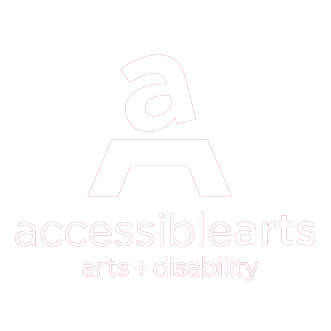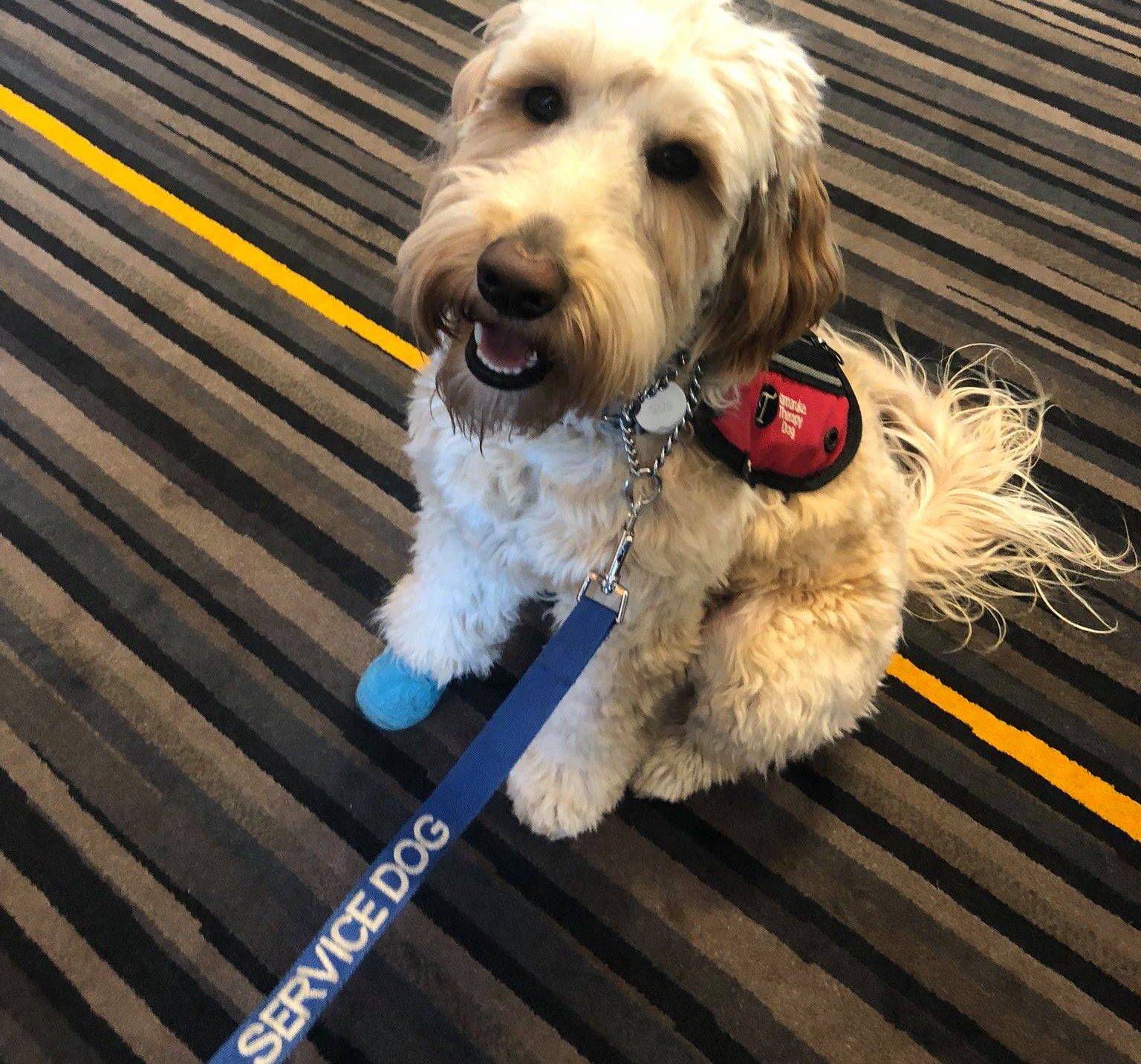10 Top Tips Of The Dos And Don’ts Of Engaging With Assistance Dogs And Their Handlers.
Many artists and audience members with disability use assistance dogs (AD) to help them out. Accessible Arts Advisor Erika Gelzinnis has an assistance dog called Gus (pictured) and she’s put together a list of 10 top tips to help us all be more aware of the dos and don’ts of engaging with assistance dogs and their handlers.
1) Assistance dogs come in all breeds, sizes, jackets and harnesses. They are not all Labradors.
2) Do not distract (interrupting this dog may put the handler at risk).
3) See the person, not the dog (aka ignore the dog).
4) Don’t ask to pat (would you ask to stroke someone’s wheelchair?).
5) Ask the handler where they would like to sit (e.g. Do not seat handler in an outdoor eating area unless they choose this).
6) Do provide water access at your venue or business.
7) Trust that the handler knows what they are doing and will ask if they need assistance.
8) Some disabilities are invisible and many AD tasks are too. Don’t assume.
9) Do not approach an assistance dog sitting without its handler, it is tasking and must not be distracted.
10) Do not say (real examples) : Scream “Look, a dog! So cute!” | “What’s he training to be?” | “What’s he for?” | “I know I’m not supposed to pat but I can’t resist” | “I had (insert story about dog) but he died” | “How do I get a jacket like that so I can take my pet out with me?” |”What’s your disability?” | Refer to the handler as the dog’s mummy.
It always important to keep expanding your knowledge and awareness about best practises for any type of support for assistance dogs and handlers and this list is a good practical guideline to help you get started. Accessible Arts provides a range of learning and development services that can help you make some very easy and practical changes which will make a world of difference to how you and your team connect with and support people with disability. We also provide consulting services across a range of areas, including making your digital content and online events accessible. We’re experts in arts, culture, events and disability, so we know how to help you get the results you’re after. To find out more, get in touch.

